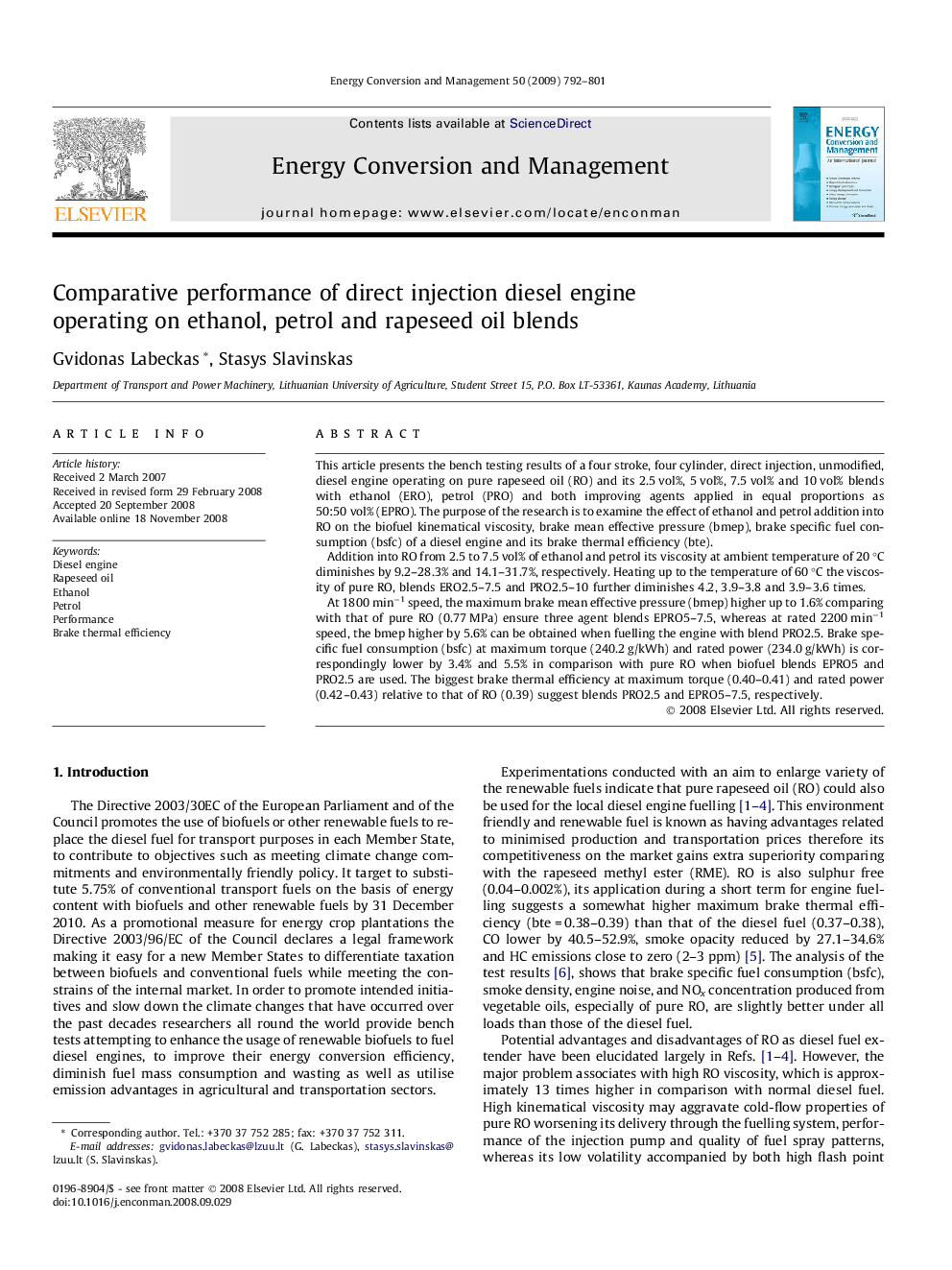| Article ID | Journal | Published Year | Pages | File Type |
|---|---|---|---|---|
| 766395 | Energy Conversion and Management | 2009 | 10 Pages |
This article presents the bench testing results of a four stroke, four cylinder, direct injection, unmodified, diesel engine operating on pure rapeseed oil (RO) and its 2.5 vol%, 5 vol%, 7.5 vol% and 10 vol% blends with ethanol (ERO), petrol (PRO) and both improving agents applied in equal proportions as 50:50 vol% (EPRO). The purpose of the research is to examine the effect of ethanol and petrol addition into RO on the biofuel kinematical viscosity, brake mean effective pressure (bmep), brake specific fuel consumption (bsfc) of a diesel engine and its brake thermal efficiency (bte).Addition into RO from 2.5 to 7.5 vol% of ethanol and petrol its viscosity at ambient temperature of 20 °C diminishes by 9.2–28.3% and 14.1–31.7%, respectively. Heating up to the temperature of 60 °C the viscosity of pure RO, blends ERO2.5–7.5 and PRO2.5–10 further diminishes 4.2, 3.9–3.8 and 3.9–3.6 times.At 1800 min−1 speed, the maximum brake mean effective pressure (bmep) higher up to 1.6% comparing with that of pure RO (0.77 MPa) ensure three agent blends EPRO5–7.5, whereas at rated 2200 min−1 speed, the bmep higher by 5.6% can be obtained when fuelling the engine with blend PRO2.5. Brake specific fuel consumption (bsfc) at maximum torque (240.2 g/kWh) and rated power (234.0 g/kWh) is correspondingly lower by 3.4% and 5.5% in comparison with pure RO when biofuel blends EPRO5 and PRO2.5 are used. The biggest brake thermal efficiency at maximum torque (0.40–0.41) and rated power (0.42–0.43) relative to that of RO (0.39) suggest blends PRO2.5 and EPRO5–7.5, respectively.
